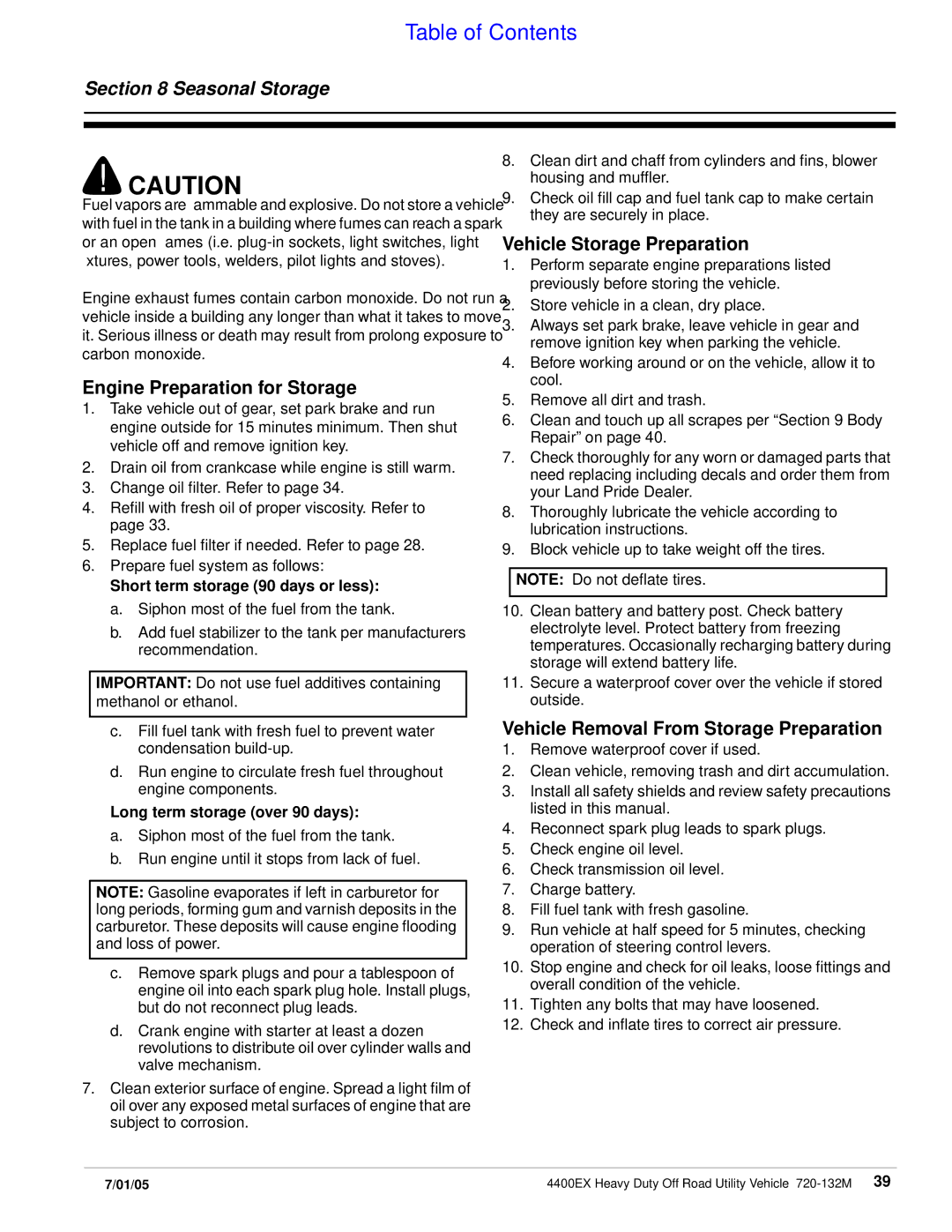22081, 22076, 720-132M specifications
Land Pride is renowned for its high-quality agricultural and landscaping equipment, and among its impressive lineup, the Land Pride 720-132M mower stands out as a versatile solution for various mowing applications. Designed with performance and efficiency in mind, the 720-132M mower is perfect for both residential and commercial users looking for a reliable machine capable of handling diverse terrain and mowing conditions.One of the key features of the 720-132M is its robust cutting deck, which measures 132 inches in width. This wide cutting capability allows for expansive mowing coverage in fewer passes, significantly reducing mowing time and increasing productivity. The deck is constructed from heavy-duty materials, ensuring durability and longevity even when used in challenging environments.
Equipped with a high-performance cutting system, the mower boasts engineered blades that provide a clean and precise cut, promoting healthier lawn growth. The unique blade overlap design ensures consistent cutting performance across the entire width of the deck, reducing the likelihood of uncut areas left behind.
The Land Pride 720-132M features adjustable cutting height settings, giving operators the flexibility to adapt the mower to various grass types and desired finish quality. This adjustability is crucial for achieving optimal results, especially when transitioning from different mowing conditions.
Safety is a top priority for Land Pride, and the 720-132M integrates several safety features to protect both the operator and the equipment. Its robust frame design provides stability during operation, while operator presence controls ensure the mower stops when the operator leaves the seat, mitigating the risk of unintended accidents.
The mower is compatible with a wide range of tractors, allowing for seamless integration with existing equipment. Its simple attachment system enables quick mounting and dismounting, making it user-friendly and convenient for varying mowing tasks.
Another notable technology in the 720-132M is its efficient power transfer system. The mower is designed to maximize performance while minimizing wear and tear on the tractor, ensuring that operators can tackle their mowing tasks with confidence and ease.
Overall, the Land Pride 720-132M mower, with its advanced technologies and features, stands out as a leading choice for those seeking reliable and efficient mowing solutions tailored to both professional and personal landscaping needs.

